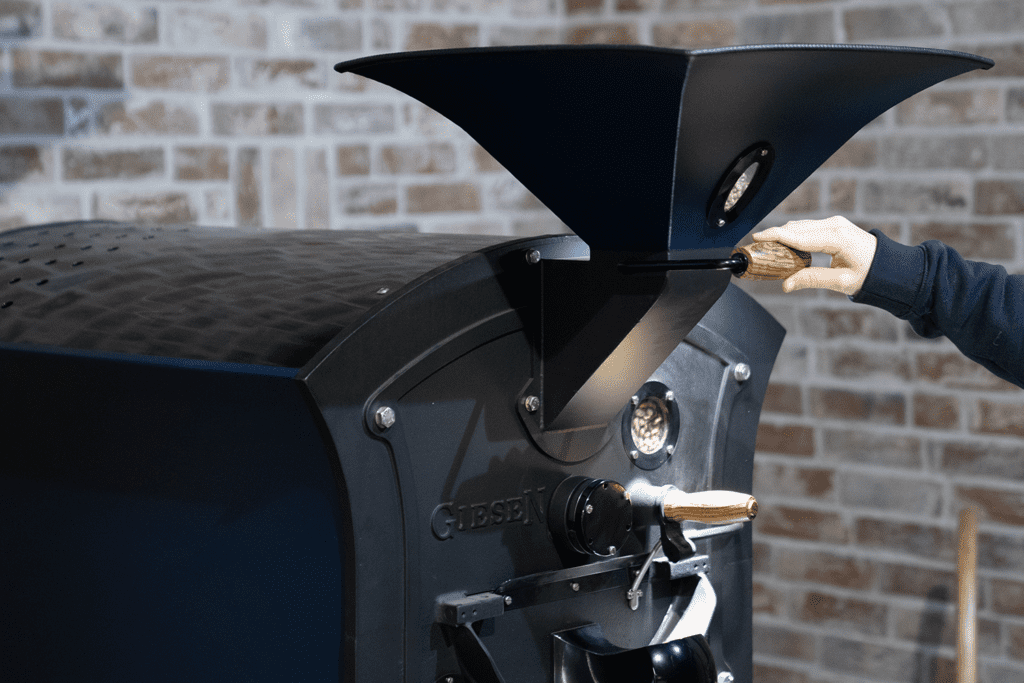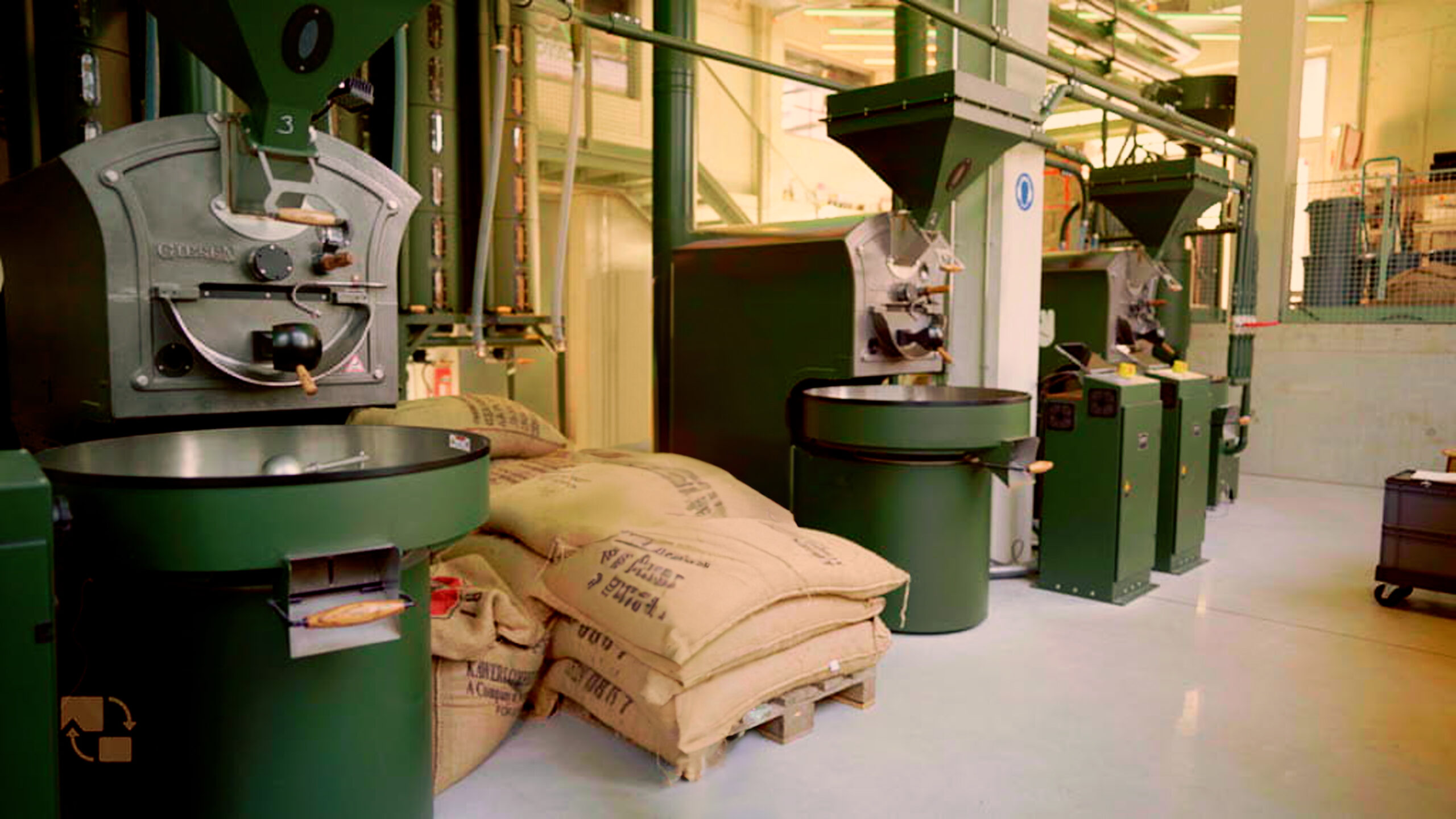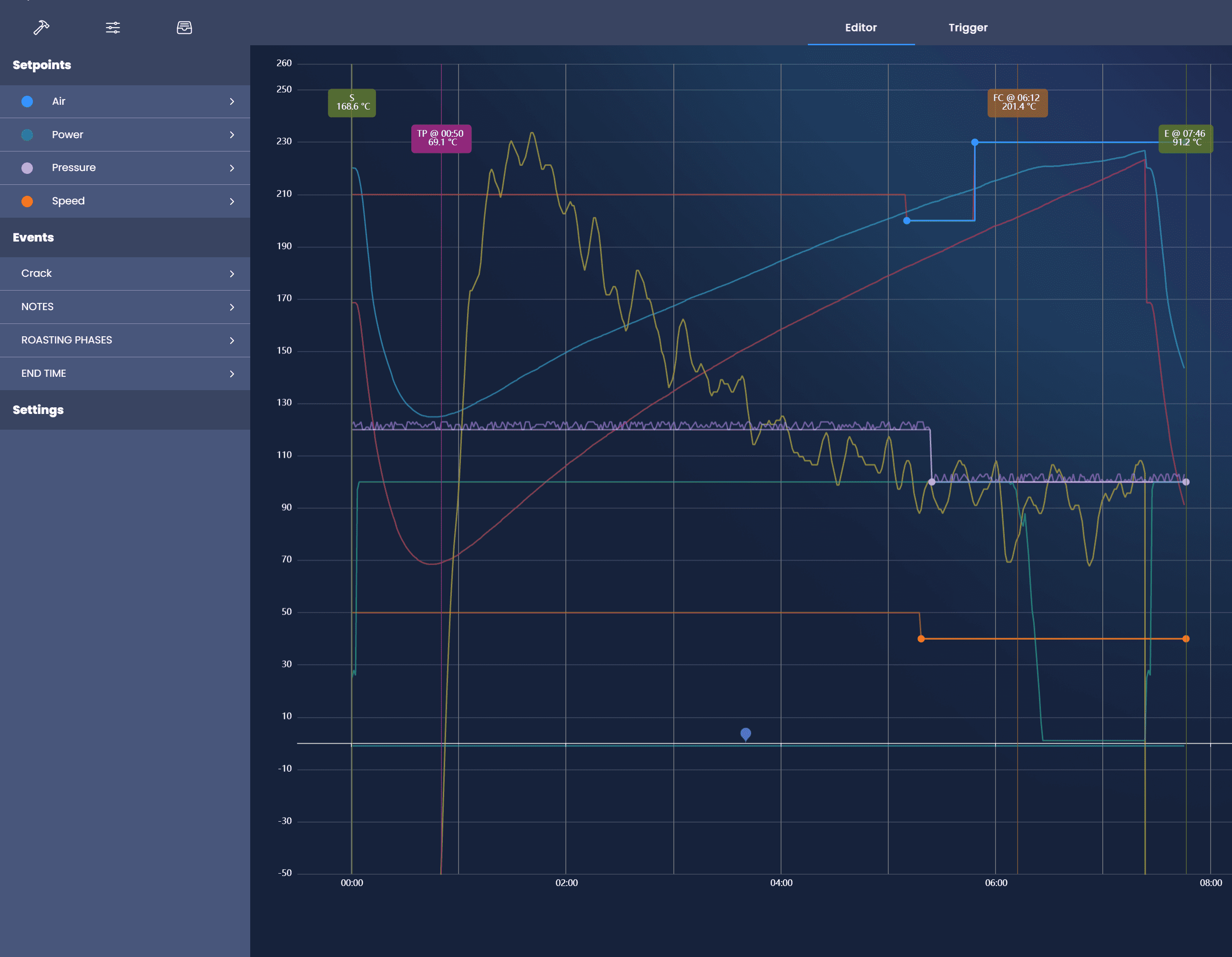Everyone drinks coffee, this is a moment of peace, an energy boost or to simply connect with someone. But who are the people roasting your coffee? You’re listening to the Giesen Roastcast, where we talk about everything that has to do with roasting and your business in the coffee industry. Cisca roasted coffee year in, year out for over half a decade. With her own coffee roastery and as an ambassador of Giesen Coffee Roasters, she wants to show you what it means roasting coffee for a living. So grab a cup of coffee, sit back and relax. This is the Giesen Roastcast.
The first ever guest of the Giesen Roastcast is Tom Osborne. The owner of Crafthouse Coffee in the UK. The subject: When to scale up your business? This is one of the most important questions there is when having a successful business. Together they talk about when it’s time to scale up. In terms of the coffee roaster, but also business-wise. When do you invest in a larger roaster? And when do you hire staff?
You can also listen to the episode here:
Summary
Cisca: ‘What was your initial plan when that romantic image of coffee roasting crossed your mind?’
Tom: ‘I think when I first started with the coffee roasting adventure, I knew that there was something in it. I could see an emerging industry. I didn’t know where I really stood in the industry. First year and a half I worked out where my place was in the industry. If I’m honest, initially, my plan was just see what happens. The thing I wanted the most was to become a service. Not just roasting coffee.’
Cisca: ‘Having a dream and making it become reality is difficult. What advice would you give to roasters who have the ambition and dream to start their own business?’
Tom: ‘I still think if you are coming in this industry, not relying on it for money but because you are passionate about it. Don’t depend on it financially. Because if you depend on it and it doesn’t work, you will grow to resent that business. It takes a long time to earn money.’
Cisca: ‘Seven years ago when I started, there weren’t many roasters in the Netherlands. But now, there are a lot of micro roasteries. So, it is more difficult to claim your position in the industry. How is that in the UK?’
Tom: ‘The same, I guess. Nowadays it’s commercial. You try to create your unique point, but you can’t just say that you only roast Arabica and are a small independent business. It’s fantastic, but that is the same story as every other roaster in the area. So, you should think about what makes you unique.’
Cisca: ‘When did you decide to scale up? Or when did you know you needed to scale up?’
Tom: ‘That’s a hard one to answer. Let me go back to a point where I had a conversation when I was looking to hire my roaster. I talked with a really good business friend of mine. He runs a successful espresso machinepart company. And he advised me that if you can afford someone for six months, you should take them on. Because there is this weird thing, like when you hire someone, and they will be busy because you need to make them busy to make it work. So, I knew when I had my W6, that I couldn’t spend my life behind the roaster. I knew that we needed to climb up to the W15 which was our second roaster because I needed to roast less. I needed to roast only for 2 days a week, so I could spend the other 3 days packing the coffee, talking to customers, and so on. I needed to build the business.
Unlike the jump from the W6 to the W15, where we weren’t out of capacity, but I just needed less time roasting. It was the complete opposite when we scaled up from the W15 to the W30. We were roasting day and night. We just needed the W30.’
Cisca: ‘Were you afraid of the risk?’
Tom: ‘When we were looking at the W30, we already had the money in the bank. As I said before, you shouldn’t depend on it financially. So we didn’t worry about the finance because we had a strategy.’
Cisca: ‘I think it is a good decision to scale up when you have that momentum where you don’t have time anymore for other things in your business, because you are roasting all the time.’
Tom: ‘I think there are no huge risks you take. Don’t get me wrong. Buying a bigger roaster always kills our cash flow. But because I didn’t depend on the business financially, we could scale with risk, but if we lost it all, it wouldn’t be the end of the world sort of risk.’
Cisca: ‘Being a businessman or woman is also about how you take your risks. Because sometimes, things look very risky, but if you compare it or if you have a good strategy, then you don’t take as many risks as you thought you would. I think the strategy is always something you must consider. Not only within the next few months but also in the next few years. How do you want to grow and run your business?’
Cisca: ‘What advice would you give to roasters that are doubting about scaling up?’
Tom: ‘Definitely, that with higher risks, comes higher opportunity. The more tolerance you have, the more patient with customers, the higher the reward. Focusing on ‘bad’ customers is not healthy. So, when it comes to growing and scaling, sometimes you got to go for it. Go out of your comfort zone.’





Dit bericht heeft één reactie
I love coffee😍